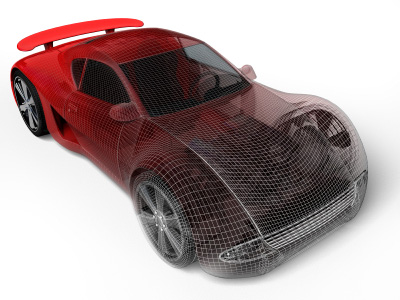Automotive EMC Expert System

Today's automobiles are complex
electronic systems containing dozens of
microprocessors and a variety of RF transmitters
and receivers. Keeping track of all possible
interactions that might result in an electromagnetic interference problem is
a formidable task. This expert system monitors automotive designs while they
are being developed. It identifies design
features that are likely to present EMC problems
and estimates the magnitude of these problems. In
this way potential interference problems can be
averted before the first prototypes are built and
tested.
Web Link
Automotive EMC Expert System Web Page
Publications
- X. Dong, H. Weng, D. G. Beetner, T. Hubing, “Approximation of worst-case crosstalk at high frequencies,” IEEE Trans. on Electromagnetic Compatibility, vol. 53, no. 1, Feb. 2011, pp. 202-208.
- D. Beetner, H. Weng, M. Wu and T. Hubing, “Validation of worst-case and statistical models for an automotive EMC expert system,” Proc. of the 2007 IEEE International Symposium on Electromagnetic Compatibility, Honolulu, HI, USA, July, 2007.
- T. Hubing, “EMC expert systems for evaluating automotive designs,” Proc. of the 2006 IEEE International Symposium on Electromagnetic Compatibility, Portland, OR, USA, Aug. 2006, THPM-6-6.
- S. Ranganathan, D. Beetner, R. Wiese and T. Hubing, “An expert system architecture to detect system-level automotive EMC problems,” Proc. of the 2002 IEEE International Symposium on Electromagnetic Compatibility, Minneapolis, MN, Aug. 2002, pp. 976-981.
- H. Weng, D. Beetner, T. Hubing, X. Dong, R. Wiese and J. McCallum, “Investigation of cavity resonances in an automobile,” Proc. of the 2004 IEEE International Symposium on Electromagnetic Compatibility, Santa Clara, CA, USA, Aug. 2004, pp. 766-770.
|

